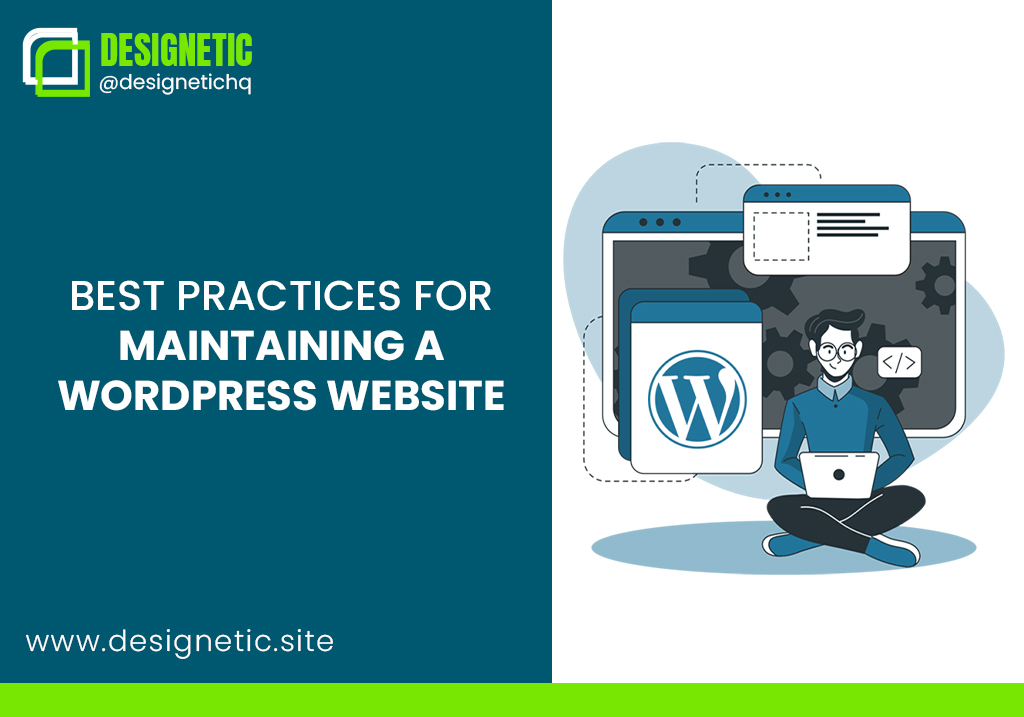Maintaining a WordPress website is crucial for its performance, security, and longevity. Regular maintenance ensures that your site is running smoothly, stays secure, and continues to deliver a great user experience. Whether you’re a business owner, a blogger, or an online entrepreneur, knowing how to effectively maintain your WordPress site can save you time and money in the long run.
In this article, we’ll cover the best practices for maintaining your WordPress website, ensuring it’s always up-to-date, secure, and optimized for performance.
1. Regularly Update WordPress Core, Themes, and Plugins
One of the most critical tasks for maintaining a WordPress website is keeping everything up-to-date. Outdated themes, plugins, or WordPress versions are vulnerable to security breaches.
- Update WordPress Core: Every major WordPress update includes security patches and new features. Ensure your website is running the latest version.
- Update Themes & Plugins: Outdated themes and plugins can introduce security risks or cause compatibility issues. Regular updates help avoid these problems.
Pro Tip: Use a staging environment to test updates before applying them to your live site.
2. Backup Your Website Regularly
A backup is your safety net if something goes wrong. Whether it’s a plugin conflict, a malicious attack, or a human error, having regular backups ensures you can restore your site quickly.
- Choose a Reliable Backup Solution: Use plugins like UpdraftPlus or BackupBuddy to automate your backups.
- Store Backups Off-Site: Always store your backups in a secure location, separate from your web host. Cloud storage solutions like Google Drive or Dropbox are great options.
3. Optimize Website Speed and Performance
A fast website provides a better user experience and helps with SEO rankings. Regularly check your website’s speed and make necessary adjustments to improve loading times.
- Use Caching: Plugins like WP Rocket or W3 Total Cache can dramatically improve load times by caching static files.
- Image Optimization: Compress and resize images before uploading them to your site using plugins like Smush or ShortPixel.
- Minimize Plugins: Too many plugins can slow down your website. Regularly review and remove unnecessary plugins.
4. Strengthen Website Security
Website security should be a top priority. Cyberattacks and malware can compromise your data, hurt your search rankings, and damage your brand’s reputation.
- Use Strong Passwords: Ensure that all admin users have strong, unique passwords.
- Enable Two-Factor Authentication (2FA): This adds an extra layer of security by requiring a second verification step when logging in.
- Install Security Plugins: Plugins like Wordfence or Sucuri provide robust security features, such as firewall protection, malware scanning, and login monitoring.
5. Monitor Uptime and Performance
Downtime can harm your website’s reputation and result in lost visitors or sales. Regular monitoring allows you to respond quickly to performance issues.
- Use Uptime Monitoring Tools: Services like UptimeRobot or Jetpack Monitor can alert you if your site goes down.
- Check for Broken Links: Regularly scan your site for broken links, as they negatively impact user experience and SEO. Plugins like Broken Link Checker can help automate this process.
6. Regular Database Optimization
Your WordPress database stores everything from posts to plugin data. Over time, it can become cluttered with unnecessary information, which can slow down your website.
- Use Database Optimization Plugins: WP-Optimize is a great plugin that cleans your database by removing post revisions, spam comments, and more.
7. Review Website Analytics
Understanding your website’s traffic and user behavior is crucial for growth. Regularly reviewing analytics will help you identify areas for improvement.
- Set Up Google Analytics: Use this tool to track visitor behavior, traffic sources, and more.
- Monitor SEO Performance: Tools like Google Search Console provide insights into your site’s performance in search results and help you fix issues like broken links or slow-loading pages.
Need Help with WordPress Maintenance?
Maintaining a WordPress website can be time-consuming, especially when you’re focused on growing your business. If you’re looking for expert help to keep your website secure, up-to-date, and performing at its best, I offer professional WordPress website maintenance services on Fiverr and Upwork.
Whether it’s regular updates, backups, security monitoring, or speed optimization, my service ensures your site runs smoothly so you can focus on your business.
Why Choose Professional Maintenance Services?
Outsourcing your website maintenance to an expert can prevent unexpected downtime, security threats, and performance issues. With over 10 years of experience in WordPress development and maintenance, I’ve helped businesses keep their websites healthy and running efficiently.
Feel free to get in touch to learn more about my services or to discuss how I can help you with your WordPress site.
Final Thoughts
Following these best practices ensures that your WordPress website remains secure, fast, and user-friendly. Regular maintenance is key to avoiding costly problems and ensuring your website performs optimally. If you need professional help, don’t hesitate to check out my Fiverr and Upwork gigs.
FAQs
How often should I update my WordPress website?
Ideally, you should check for updates weekly and apply them as soon as possible to ensure security and compatibility.
How do I know if my website is secure?
Regularly monitor your site with security plugins like Wordfence, and always keep backups. You can also hire a professional for regular security audits.
What happens if I don’t maintain my WordPress site?
Without proper maintenance, your website is more vulnerable to security breaches, slow loading times, broken functionalities, and poor SEO performance.



